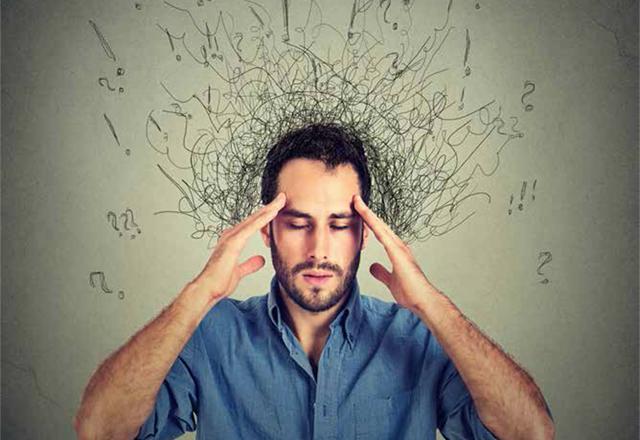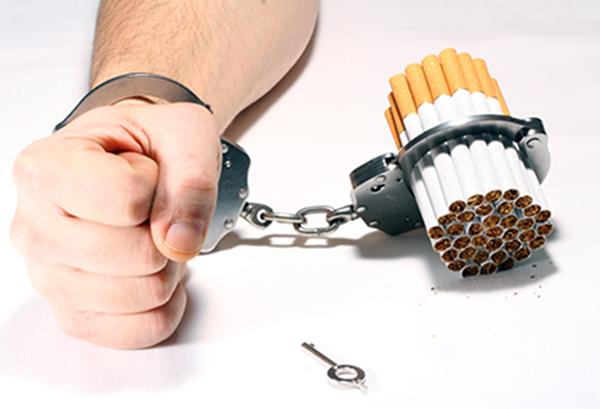You are here
The addicted brain
By Dina Halaseh , Family Flavours - Feb 20,2022 - Last updated at Feb 20,2022

Photos courtesy of Family Flavours magazine
By Dina Halaseh
Educational Psychologist
Many of our New Year’s goals include doing better or starting over. Whether it is smoking, food, alcohol or drugs, many people had New Year’s resolutions to quit smoking, get sober or reduce binge eating. To help make our goals achievable, we need to understand how addiction affects the brain.
Addictive substances were used throughout the years for their medical benefits or recreational needs. It’s only recently that scientists are able to use brain imaging and new brain science to understand how the brain becomes addicted. Withdrawal syndromes alone are not enough for us to state that we are addicted to something, and almost always, people mistake a bad habit for addiction.
Even though a bad habit might give you pleasure and might be difficult to stop, addiction is still different; it is compulsory and the person loses control of the situation. We do not often find people losing family members over their addiction to chocolate, sports or other bad habits.
Addiction reshapes the brain and hijacks the brain’s reward system. The brain circuits are altered in areas related to our ability to regulate our actions and use our judgment, resulting in negative consequences. In many cases, this results in permanent brain changes. With addiction, addicts give up their loved ones for the drug.
What happens to the brain
Dopamine is a chemical transmitter that is a natural part of our brain’s reward system. This hormone is usually released during healthy daily activities that bring us a little bit of joy, like eating, exercising and even cuddling with our loved ones. It is normal for these pleasurable activities to activate the reward system. This not only causes us to be stimulated, but the brain also encodes and remembers what caused this pleasure, so a person repeats it in the future.
The brain is flooded by dopamine with each drug use, making the drug very rewarding and addictive. The brain also encodes and remembers the circumstances of taking the drug as pleasurable so the person can repeat it in the future. Alcohol, for example, acts in the same way and increases the effects of another neurotransmitter resulting in slower signals across neurons.
The repetition of this cycle causes the brain to decrease the production of its own dopamine and dopamine receptors and depend on the dopamine from the drugs. The scary thing is that each time a drug is taken, the brain requires more of the substance to release the same amount of dopamine. Over time, the brain won’t maintain normal levels of dopamine without the drugs.
Understanding how drugs change the brain can help one deal with an addict. It’s not just as simple as giving up something that pleases them. It’s not as simple as “if you love us, you’ll quit”. It’s more about understanding and accepting that the addict’s brain was reorganised and reshaped in a way that requires treatment to deal with this reorganisation as well as the memories and connections built when under the influence.
Bad habit or addiction?
Many people say they are addicted to coffee, which contains a powerful drug, caffeine. Caffeine, as we all know, has many effects on our behaviour and brain function. Feeling more alert and focused is why many people drink coffee. But if for any reason someone decides to quit coffee, it would be possible. Yes, stopping abruptly might result in headaches, anger and sleepiness, but none of these side effects are lethal.
The brain gets used to a certain amount of caffeine and not getting that amount affects their brain imbalance, causing withdrawal symptoms. In this case, the person is not addicted to caffeine but has become tolerant to it. If someone is truly addicted, the sudden withdrawal from drugs or alcohol can be distressing, painful and even dangerous.
Reprinted with permission from Family Flavours magazine
Related Articles
Teen smokers might crave nicotine in part because their brains respond differently than adults to seeing people light up, a small stud
LONDON — Since he ditched Marlboro Lights five years ago, Daniel’s fix is fruit-flavoured nicotine gum that comes in neat, pop-out str
By Yaman TalConsultant Urological Surgeon and Consultant in Sexual MedicineLove is one of the strongest of human emotions but if you think i













